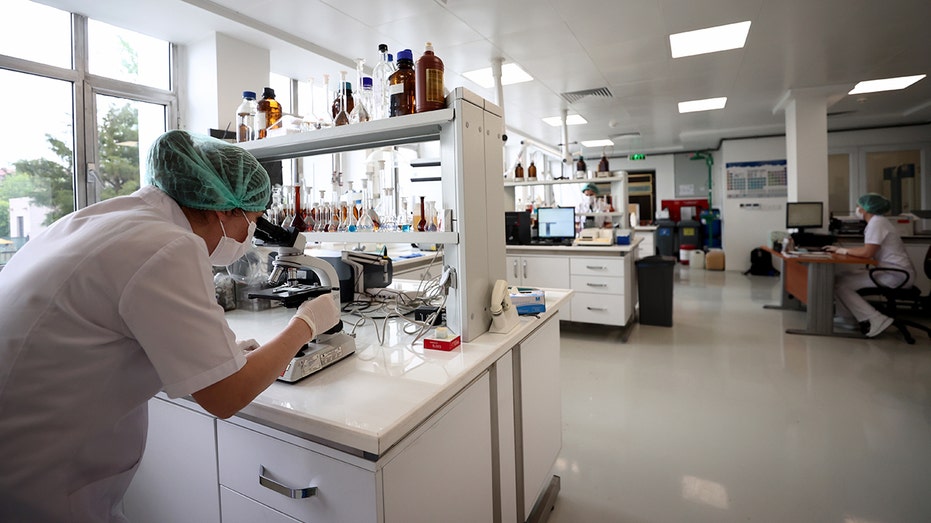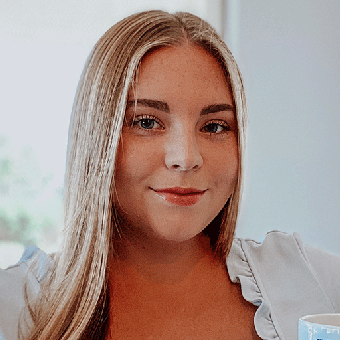Biotech entrepreneur investing in a ‘new generation’ of cancer, chronic disease treatments
Sam Waksal warns of the consequences of the government not making biotech investments a bigger priority
Biotech entrepreneur invests in a ‘new generation’ of cancer, chronic disease treatments
Graviton Biopharmaceutical Holdings Chairman and CEO Sam Waksal discusses growth investment opportunities in biotech and how the sector should be a national priority.
Sam Waksal, co-CEO and chairman of Graviton Biopharmaceuticals and former CEO of ImClone systems, has found another growth opportunity in the biotech sector that could change the trajectory of cancer and genetic disease treatments.
"It changes outcome and it harnesses the patient's immune system to develop a new generation of drugs that save people's lives," Waksal said in an interview on "Mornings with Maria" Thursday. "Doesn't save everyone's life, but it's changed outcomes."
Last year, Graviton gained development and commercialization rights for the Chinese-engineered ROCK2 inhibitor, a drug that targets the Rho/Rho containing protein kinase 2 and penetrates the central nervous system to provide therapeutic treatment for cancer, autoimmune and genetic diseases, according to a press release.
"The Rho kinase pathway is important in how cells age and how cells become disease. And the reason I love it, is it's important in multiple disease areas, it's important in cancer," Waksal detailed. "It's critically important in autoimmune diseases like M.S. and lupus. It's critically important in neurological diseases, in saving neurons and keeping them alive."
DIABETES-RELATED WEIGHT LOSS DRUGS FACING SUPPLY ISSUES AMID VIRAL TREND
According to Waksal, who claimed to have worked for over a decade on this development, the ROCK2 inhibitor halts the aging and growing processes of disease cells.

Investment in "novel approaches" within the biotech industry are "critically important" for genetic and chronic disease therapeutics, Graviton founder Sam Waksal said on "Mornings with Maria" Thursday, October 27, 2022. (Getty Images)
"When this isoform that we work on, ROCK2, gets activated, disease happens, aging happens, cells cease becoming 'pretty cells' that exist when they're young and healthy, and they become ugly cells that are disease, they're aging," Waksal further explained. "And we inhibit that pathway with the new generation of drugs that we're making."
The biotech entrepreneur, who’s founded other pharmaceutical companies like Kadmon, Équilibre and MeiraGTx, hopes the drug can meet the unmet medical need for illnesses such as ALS, Alzheimer’s, schizophrenia and Parkinson’s.
"The area of neurobiology is the last stronghold of metaphysics in medicine. It is important," the CEO said. "Right now, 10% of people who have reached the age of 65, will have Alzheimer's. At the age of 85, that number will be close to 50%. It's going to cost America, probably in the latter part of 2028, about $1 trillion a year, just wiping the drool off of patients' mouths."
"Just caring for people that are sick and not being able to do anything and not being able to do anything for this patient population is going to be not only a drain on families, not only a drain on the economy, in fact, I think it will bankrupt America by then," Waksal continued. "We have to do things to change outcome."
Waksal warned of an "unmitigated disaster" from the consequences of the government not making biotech investments more of a national priority.
"It would be important for the world to understand, for American citizens to understand, that their lives are getting saved, that life expectancy is being extended because of the novel approaches that we're taking in this industry," he said.
Alto Pharmacy attacks drug pricing problem in America
Alto Pharmacy CEO Jamie Karraker explains how the digital drugstore plans to reduce prices in the U.S. on 'The Claman Countdown.'
President Joe Biden signed an executive order last month that launched a national biotechnology and bio-manufacturing initiative, and also held a summit at the White House with top government officials and department heads to discuss plans on how to administer the order and allocate more than $2 billion.
Though the plan mentioned unspecified funding for medical breakthrough exploration, it includes $1 billion for bio-industrial manufacturing infrastructure and a $250 million grant program to support sustainable American fertilizer production.
GET FOX BUSINESS ON THE GO BY CLICKING HERE
Medical streaming service combines tech and entertainment to make health information accessible to everyone
Dr. Stephen O'Brien, chief medical officer of Mediflix, shares how his streaming platform is trailblazing access to medical information for everyone.
As development and U.S. trials of the ROCK2 inhibitor are underway, Waksal encouraged Americans find "easy ways" to protect themselves and keep cells healthy.
"I drink coffee every day because I think it's cardioprotective. I run because I think it's going to keep me healthy and young," the Graviton founder said. "But the thing that we really need to do is to innovate and figure out ways when things go wrong, or when we get infected with something that is a new virus that propagates through the world... like COVID... we have to innovate well enough to stop disease."
Reuters contributed to this report.























